Publications
Articles, publications, books, tools and multimedia features from the U.S. Institute of Peace provide the latest news, analysis, research findings, practitioner guides and reports, all related to the conflict zones and issues that are at the center of the Institute’s work to prevent and reduce violent conflict.
Question And Answer
Whither NATO at 75?
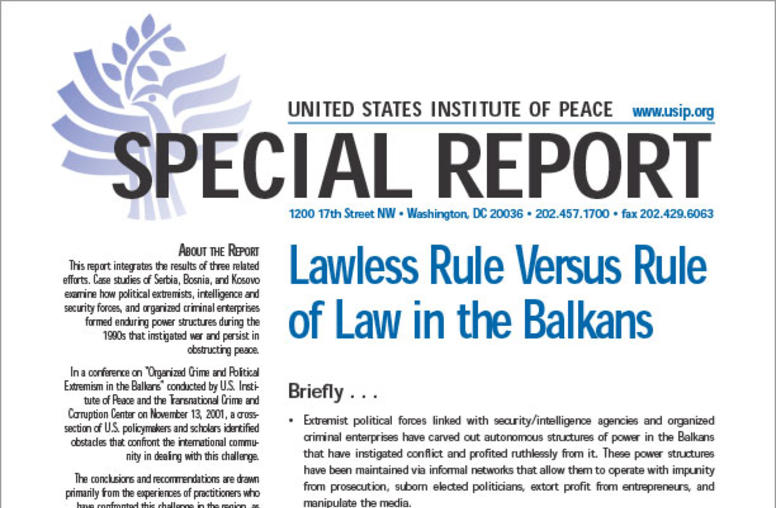
Lawless Rule Versus Rule of Law in the Balkans
This report integrates the results of three related efforts. Case studies of Serbia, Bosnia, and Kosovo examine how political extremists, intelligence and security forces, and organized criminal enterprises formed enduring power structures during the 1990s that instigated war and persist in obstructing peace.
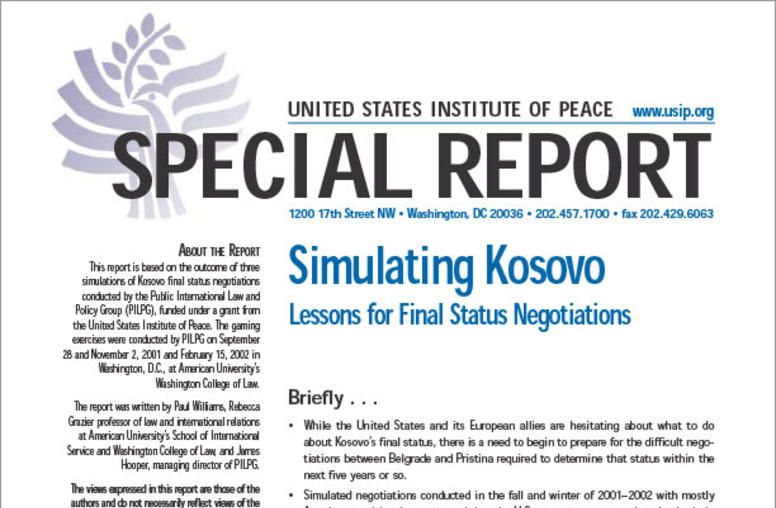
Simulating Kosovo: Lessons for Final Status Negotiations
This report is based on the outcome of three simulations of Kosovo final status negotiations conducted by the Public International Law and Policy Group (PILPG).
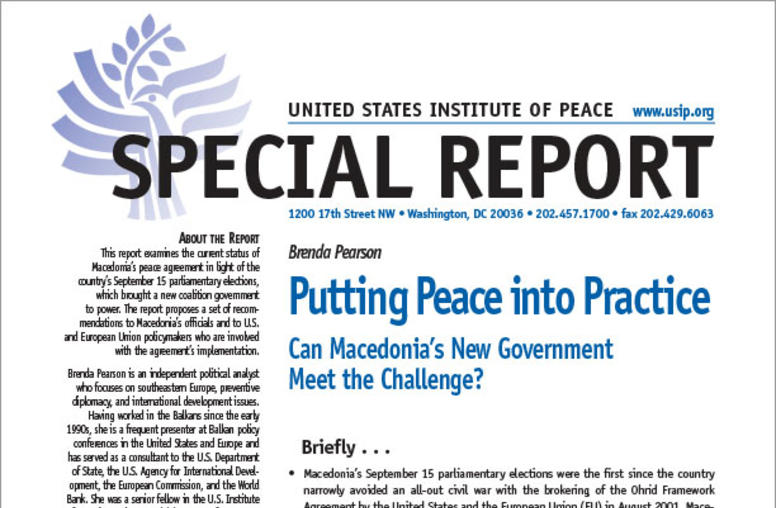
Putting Peace into Practice: Can Macedonia's New Government Meet the Challenge?
Summary Macedonia's September 15 parliamentary elections were the first since the country narrowly avoided an all-out civil war with the brokering of the Ohrid Framework Agreement by the United States and the European Union (EU) in August 2001. Macedonia's future as a unitary state largely depends upon the successful implementation of the Framework Agreement. The underlying problems that sparked the seven-month conflict between ethnic Albanian insurgents and Macedonian security forces...
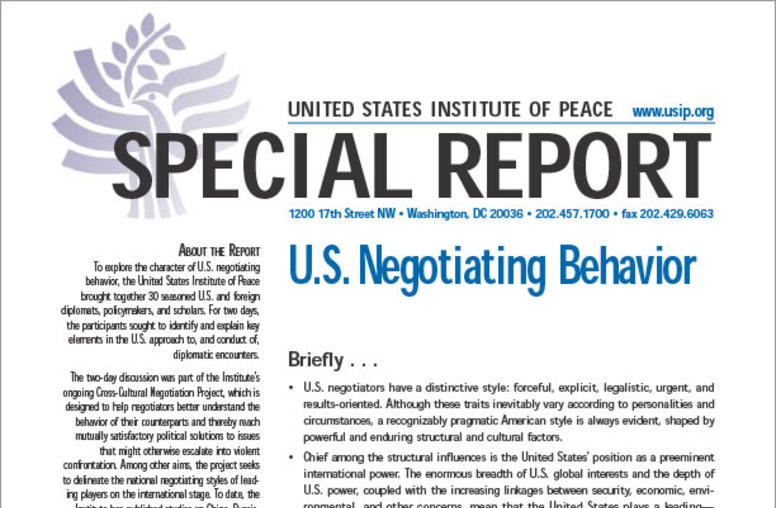
U.S. Negotiating Behavior
Summary U.S. negotiators have a distinctive style: forceful, explicit, legalistic, urgent, and results-oriented. Although these traits inevitably vary according to personalities and circumstances, a recognizably pragmatic American style is always evident, shaped by powerful and enduring structural and cultural factors.
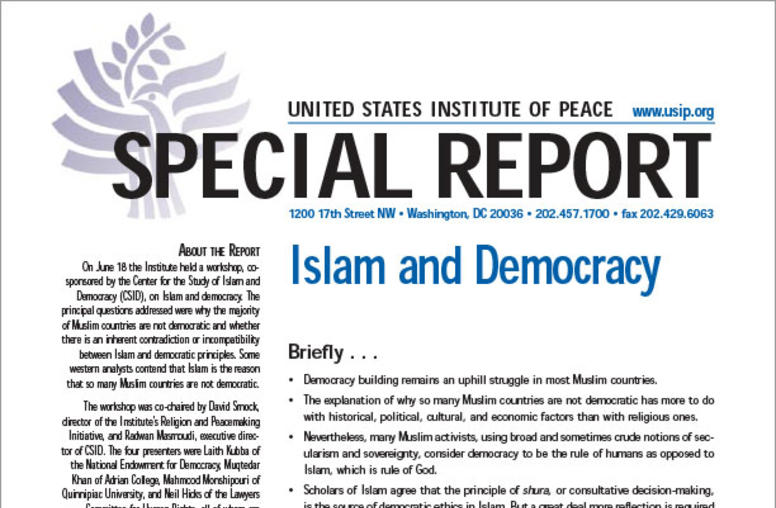
Islam and Democracy
Summary Democracy building remains an uphill struggle in most Muslim countries. The explanation of why so many Muslim countries are not democratic has more to do with historical, political, cultural, and economic factors than with religious ones. Nevertheless, many Muslim activists, using broad and sometimes crude notions of secularism and sovereignty, consider democracy to be the rule of humans as opposed to Islam, which is rule of God.
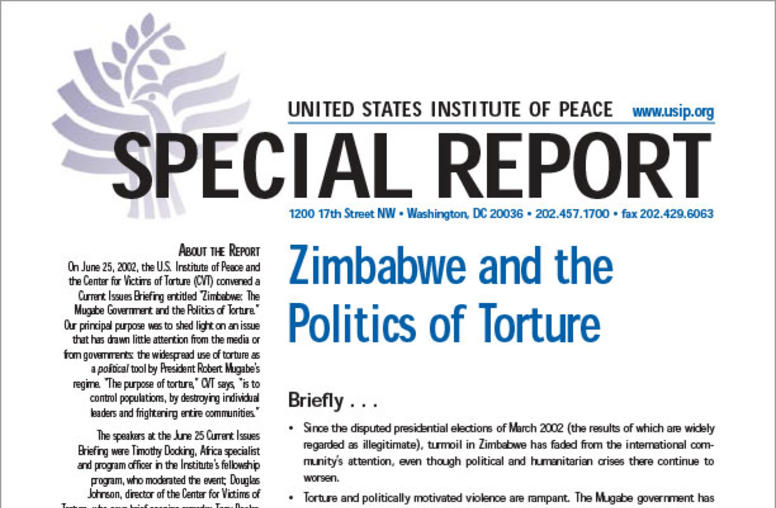
Zimbabwe and the Politics of Torture
Summary Since the disputed presidential elections of March 2002 (the results of which are widely regarded as illegitimate), turmoil in Zimbabwe has faded from the international community's attention, even though political and humanitarian crises there continue to worsen.
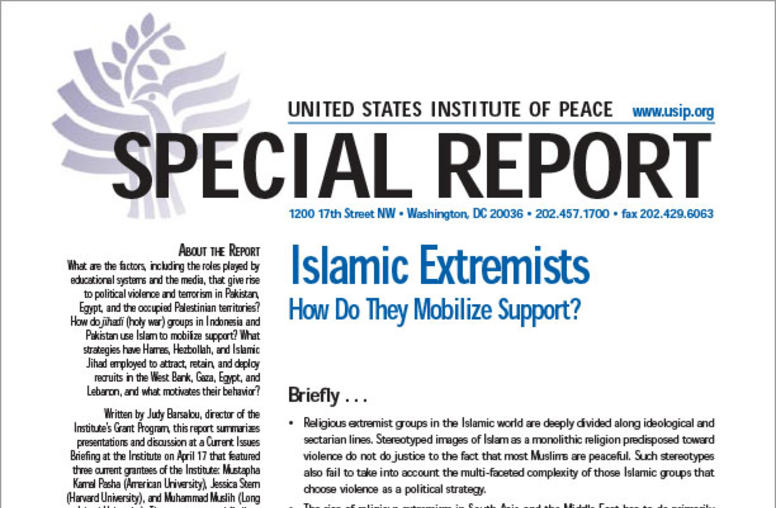
Islamic Extremists: How Do They Mobilize Support?
What are the factors, including the roles played by educational systems and the media, that give rise to political violence and terrorism in Pakistan, Egypt, and the occupied Palestinian territories? How do jihadi (holy war) groups in Indonesia and Pakistan use Islam to mobilize support? What strategies have Hamas, Hezbollah, and Islamic Jihad employed to attract, retain, and deploy recruits in the West Bank, Gaza, Egypt, and Lebanon, and what motivates their behavior?
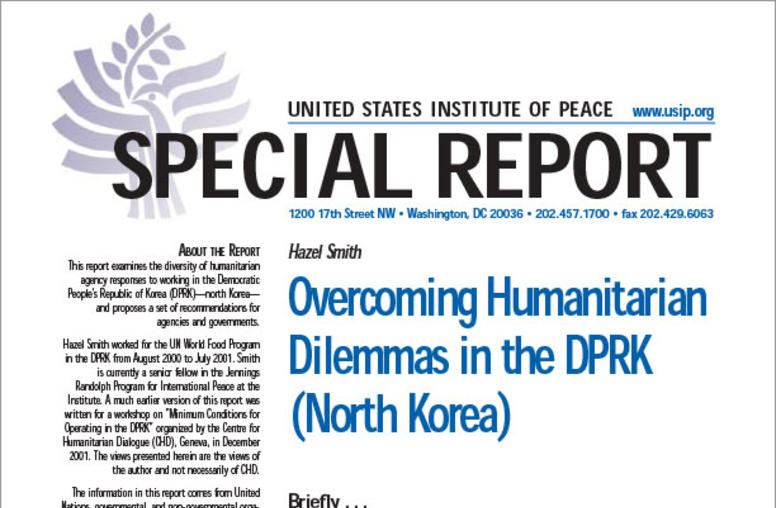
Overcoming Humanitarian Dilemmas in the DPRK (North Korea)
Summary In 1995 the DPRK (North Korean) government appealed to the international community for assistance to cope with gross food shortages, which threatened starvation for its people. UN humanitarian agencies that had had some relationship with the DPRK since the 1980s—the United Nations Development Program (UNDP) and the World Food Program (WFP)— responded to these appeals and became fully operational and resident in the country after 1995.
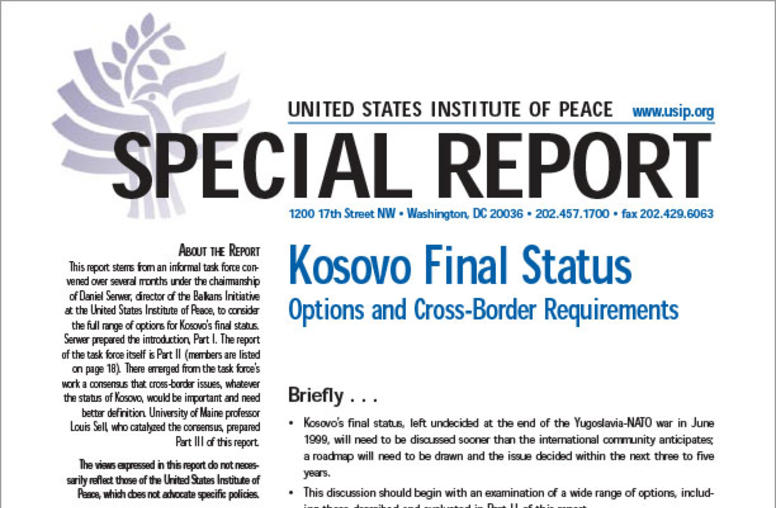
Kosovo Final Status: Options and Cross-Border Requirements
Summary Kosovo's final status, left undecided at the end of the Yugoslavia-NATO war in June 1999, will need to be discussed sooner than the international community anticipates; a roadmap will need to be drawn and the issue decided within the next three to five years. This discussion should begin with an examination of a wide range of options, including those described and evaluated in Part II of this report.
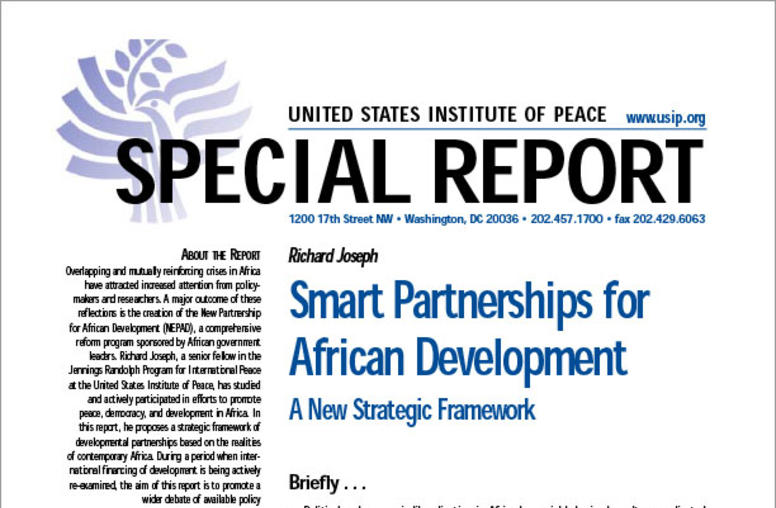
Smart Partnerships for African Development: A New Strategic Framework
Summary Political and economic liberalization in Africa have yielded mixed results, complicated by persistent armed conflicts. The New Partnership for African Development (NEPAD) is at the forefront of efforts to promote enhanced investments in poorer countries that undertake political, legal, and economic reforms. Although good governance has been high on the agenda of African countries since the 1980s, state erosion, corruption, and institutional weakness characterize the public s...